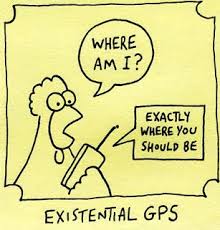记忆方法
将“existential”分解为“exist”和“-ential”,想象“exist”是指“存在”的状态,而“-ential”则像是在描述或说明这种存在的方式。因此,可以将“existential”记忆为描述与存在相关的基本、根本问题或状态的东西。例如,存在主义哲学探讨的就是人类存在的本质问题。
以上内容由AI生成, 仅供参考和借鉴
英语词源
- existential (adj.)
- 1690s, "pertaining to existence," from Late Latin existentialis/exsistentialis, from existentia/exsistentia (see existence). As a term in logic, from 1819; in philosophy, from 1937, tracing back to the Danish works of Kierkegaard (see existentialism). Related: Existentially.
权威例句
- 1. Existential questions requir-ing religious answers still persist.
- 需要通过宗教来解释的关乎人类存在的问题仍然存留。
- 2. "What if there's nothing left at all?" he cries, lost in some intense existential angst.
- “要是什么都不会留下呢?”他叫喊道,陷入了对自身存在的深度焦虑。
- 3. Existential questions requiring religious answers still persist.
- 需要通过宗教来解释的关乎人类存在的问题仍然存留。
- 4. A statement asserting the existence of a trend is existential, not universal.
- 断定有某种趋势存在的命题是存在命题而不是全称命题.
- 5. Formal logicians are not concerned with existential matters which are precisely what artists are concerned with.
- 形式逻辑学家并不关心存在的事物,而艺术家所关心的则正是这些东西.
